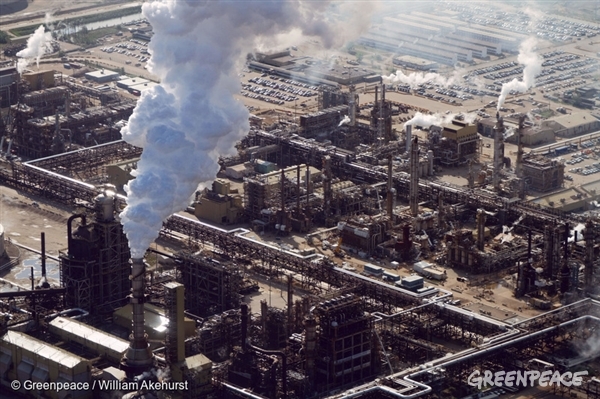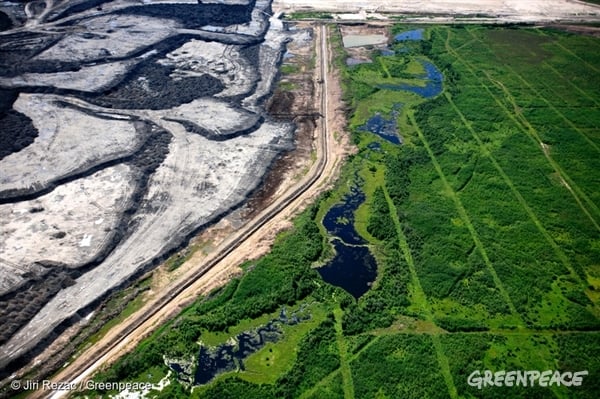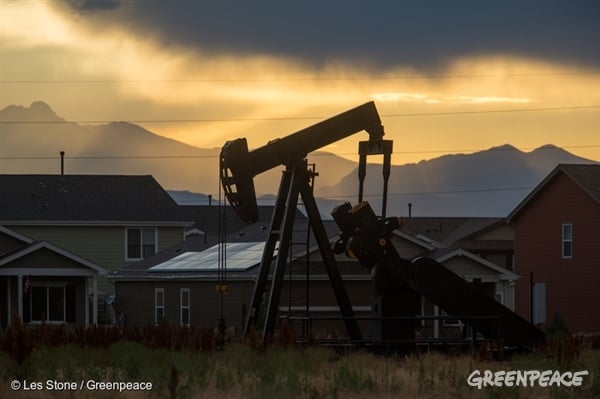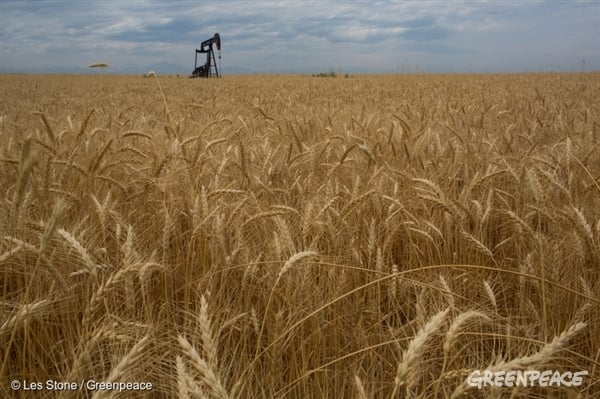Oil company polluters, not taxpayers and farmers, should bear responsibility for cleaning up the leftover toxic sites oil companies leave behind.

Tomorrow, Greenpeace Canada’s lawyer will defend the “polluter pays” principle in a case being heard by the Supreme Court of Canada.
The decision in the case (Orphan Well Association, et al. v. Grant Thornton Limited, et al.) will determine whether or not oil and gas, forestry or mining companies that go bankrupt will be able to prioritize paying back bankers by selling off valuable assets, while leaving taxpayers and landowners on the hook to clean up the environmental mess they leave behind.
This legal battle began when Calgary-based oil and gas company, Redwater Energy Corp, went bankrupt. Its bankruptcy trustee wanted to abandon the wells that were expensive to remediate (clean up), while selling the profitable wells to pay off Redwater’s ’s creditors. The Alberta Energy Regulator (AER) challenged this decision, arguing that the company should set aside money to meet the expected costs of remediation. The AER is responsible for ensuring the safety and environmentally responsible development of the province’s energy resources.
In a controversial decision, the Alberta Court of Appeal determined that payment to creditors (under federal bankruptcy law) supersedes insolvent companies’ clean-up obligations under provincial environmental law. This meant that the Redwater’s bankruptcy trustee (Grant Thornton) could do what it wanted.

With billions of dollars at stake, the AER has now taken the issue to the country’s highest court. The Supreme Court has agreed to re-examine the decision. The hearing will take place tomorrow.
Since the Redwater decision in Alberta, more than 1,800 hundred wells representing $100 million-plus in liabilities have been abandoned.
Thousands of abandoned (orphaned) oil wells are littered across Alberta’s landscape, threatening to contaminate water and soil or leak dangerous gases that endanger families in nearby homes. The social costs of dealing with these liabilities could total $8 billion.

The outcome of this case will set an important precedent.
The decision will determine whether polluters can shirk their environmental clean-up responsibilities and at a higher level, clarify how provincial environmental regulations can be squared with federal bankruptcy laws.
We don’t want a future where bankrupt oil, mining or logging companies can ignore environmental regulations and walk away from their clean-up obligations without so much as a second glance. Worse yet, they could purposely exploit these laws to avoid their environmental obligations.
This is an urgent issue, for as Canada moves towards a low-carbon future in line with the commitments we made under the Paris climate agreement, fossil fuel companies that fail to adapt are at increased risk of bankruptcy. Greenpeace is saying that if companies aren’t prepared to be part of the climate solution, then the public shouldn’t be on the hook for cleaning up their mess. It should be the polluter that pays.
We are honoured to be an intervenor in this case. For us, this means that this country’s highest court believes we have a valuable expertise that should be heard and we intend to fulfill our responsibility to Canadians to bring that expertise to bear.
You can read our legal argument on the Supreme Court of Canada website.

